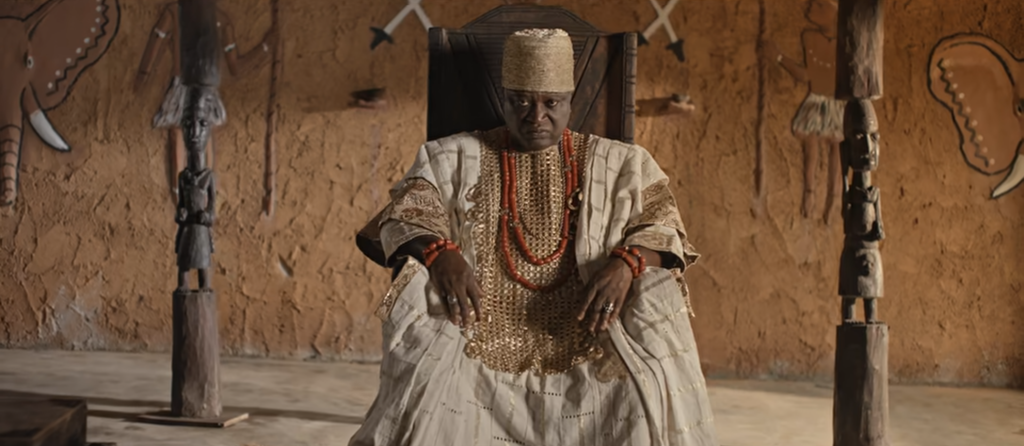Femi Branch’s public fallout reminds us why Nollywood must rethink power, ego, and accountability

Nollywood Grapples with Accountability After Femi Branch Incident
Nollywood is facing renewed scrutiny regarding power dynamics and accountability following allegations against veteran actor Femi Branch. The allegations include an alleged assault on a crew member and accusations of an unpaid debt spanning over a decade. These incidents have sparked a wider conversation about the industry's culture and the need for systemic change.
Allegations of Assault and Unpaid Debt Surface
On June 18, allegations surfaced that Femi Branch reportedly slapped a first Assistant Director (AD) on a film set. The claim was corroborated by multiple witnesses and an official statement from crew members. According to reports, the actor later apologized, but only after being confronted and prevented from leaving the set.
Adding to the controversy, a user on X (formerly Twitter), identified as Pastor Timilehin, accused Branch of owing his father, Mr. Tolulope Komolafe, N9.7 million since 2011. The debt allegedly stemmed from a loan provided to finance Branch’s film "Onile," with an agreed-upon monthly interest of N50,000. The user provided documentation, including a letter allegedly written by Branch requesting the loan.
Branch has declined to comment on the allegations, a silence that has drawn criticism and fueled public speculation.
Industry Culture Under the Microscope
These incidents have ignited a debate within Nollywood about the prevalence of unchecked power, inflated egos, and a culture of silence that often protects established figures. Critics argue that the industry has historically tolerated questionable behavior, excusing it as the eccentricity of "temperamental geniuses."
"Nollywood, like many creative industries, can be susceptible to power imbalances," explains Dr. Stella Okoro, a film studies professor at the University of Lagos. "The hierarchical structure, coupled with the star system, can create an environment where abuse of power is not only possible but sometimes enabled. The key is to establish clear protocols and reporting mechanisms to address such issues effectively."
The Crew's Response and Call for Change
The crew's statement following the alleged assault was measured but firm, thanking the 1st AD for his professionalism and commending the crew for standing up for dignity. This collective pushback is seen as a significant departure from the typical silence that often surrounds such incidents in Nollywood.
Analysts suggest this response signals a shift in attitudes within the industry. "Younger filmmakers and crew members are increasingly unwilling to tolerate the old ways," says film critic Chike Nwachukwu. "They are demanding a more professional and respectful environment, and they are using social media and other platforms to voice their concerns and hold people accountable."
Historical Context: Nollywood's Evolution
Nollywood's rapid growth over the past few decades has been remarkable. From its humble beginnings in the early 1990s, it has become a major force in African cinema, producing thousands of films annually. However, this rapid expansion has also presented challenges, including issues related to regulation, financing, and professional standards.
Historically, Nollywood has operated largely outside formal structures, relying on informal networks and personal relationships. This has fostered a sense of community but has also created vulnerabilities, making it difficult to enforce ethical standards and address grievances.
Moving Forward: Towards Greater Accountability
The Femi Branch incidents serve as a stark reminder of the need for greater accountability and transparency within Nollywood. Many are calling for the industry to adopt stricter codes of conduct, establish clear reporting mechanisms for misconduct, and prioritize the well-being of all crew members.
The conversation extends beyond individual incidents, focusing on the need for systemic change. This includes addressing issues such as exploitative contracts, unpaid wages, and the lack of professional training and development opportunities for crew members.
Ultimately, the future of Nollywood depends on its ability to create a more equitable and sustainable environment for all its stakeholders. This requires a commitment to ethical practices, respect for human dignity, and a willingness to challenge the status quo.
The Broader Entertainment Landscape
This situation echoes similar conversations happening in other entertainment industries globally, particularly in Hollywood, where the #MeToo movement has brought widespread attention to issues of sexual harassment and abuse of power. The focus on accountability and ethical behavior is becoming increasingly important across the entertainment landscape.
Originally sourced from: Movie
